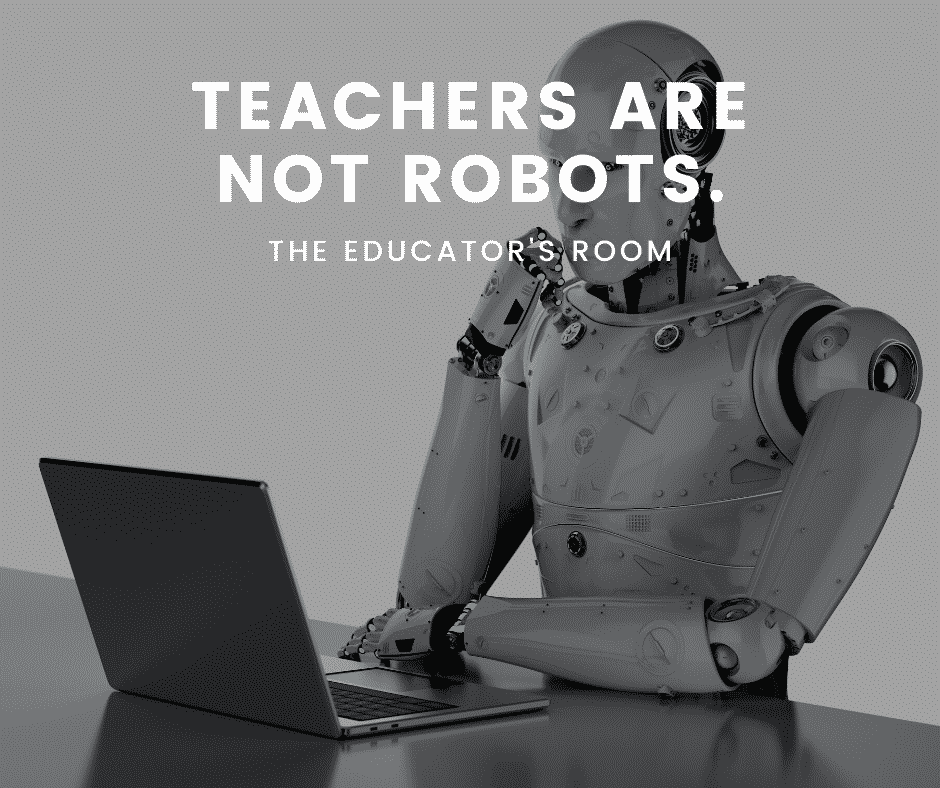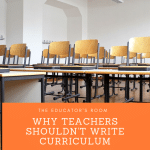The year is 2020, and by now everyone thing in America can be automated- from payments for your household bills to access our medical records to how we secure our houses when we leave. The ease of this automation allows us to have more time to live a more “fulfilled” life. As a teacher, I enjoy that I no longer have to average grades by hand, but can input grades into my digital grade book and grades appear or that automatic phone calls sent home once a grade average falls below a certain number. However, throughout the joy, there’s a message that must be screamed from the rooftop of every school in Ameria- teachers are not robots.
Robots can be programmed to do what the owner wants- from turning the temperature on in our homes to vacuuming our floors, but while we find relief in these tasks being done, teachers are not built to be robots in the classroom. We are trained to take a content area and make it come alive to students- despite their social-economical background, race or even interest as teachers, we are to train the masses in how to be critical thinkers and participants in an everchanging world around them. I can remember starting to teach Hamlet and students being less than enthused about the possibility of learning about the toils of a moody Elizabethan teen. After getting into the backstory, my students were hooked, and I’m sure in at least two students quick that itch to learn more about the English language. This nugget of knowledge is something that teachers not only can see but can feel- something that robots can’t do, much less convey.
[bctt tweet=”Teachers are not robots. ” username=””]
One time I set down with our Department Chairperson, and as we were examining data and we were given a directive that we MUST move all of our kids from “Developing” on the state exam to “Proficient”. It did not matter that if our students had disabilities that affected how well they did on high stakes testing, or if the majority of our students were homeless and wondered where our next meal came from. Teachers were given a directive, and our output was to be more students passing the standardized exam at the end of the year. To make matters worse, we were threatened that if we did not “teach to the test” or jobs could be at risk. Not only did this send the majority of the teachers into a frenzy, but it just made us realize that public education is slowly turning into a profession where robotic ideas are rewarded, and creativity is looked at like a villain.
Again, teachers are not robots.
In the recent years, there have been examples of teachers who act humanely and instead of being applauded are reprimanded. Take, for example, the teacher who decided to cook breakfast for their students on the morning of their state testing was ridiculed in the media. Or the lunch lady who was fired for giving needy students lunch. Or the Catholic School teacher who married her partner who was fired while on her honeymoon.
Again, teachers are not robots.
As we move into a society where public education is under attack, it’s critical to remind the masses that teachers are the creative forces that hook students and school communities into learning. Aristotle said it best when he said, “It is the mark of an educated mind to be able to entertain a thought without accepting it.” If we continue to ask teachers to be robots to convey information, then we are at risk of losing a generation of students (and teachers) who think that education is about marking the right answer. This shift could be determinantal for the future of our profession and ultimately be the “nail in the coffin” for the dismantling of public education.
In 2020, we need teachers who care more about doing what’s right than the possibility of being punished. We need for teachers to turn off the robotic switch and instead:
- pushback on policies that harm students and teachers.
- learn to say “no” when asked to do something that destroys education.
- learn to be vocal about what is/is not good teaching and use evidence to back up your claims
- vote for local and national candidates who are fans of public education
- run for school board positions so that you can effect change from within your district
These strategies are small, yet powerful steps to make sure that we can preserve not only our profession but our students






